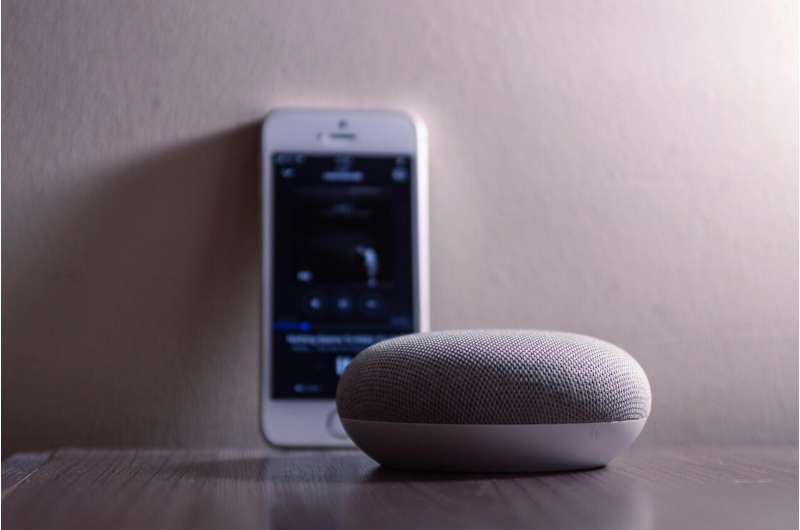
Kind 2 diabetes sufferers have entry to an assortment of digital well being instruments, together with cell apps for iPhones and distant affected person monitoring gadgets, all of which assist them handle their blood glycemic ranges. They’ll take a look at at residence, often with a glucometer, then talk that knowledge to their care crew through an app or internet portal, by calling on the telephone, or by ready for an appointment.
However these monitoring instruments assume a stage of consolation with expertise and generally math proficiency that many sufferers haven’t got. And so they all require one thing briefly provide: clinicians.
Now, researchers from Stanford Drugs have created a voice-based synthetic intelligence utility that runs on a tool already acquainted to tens of tens of millions of Individuals: a “sensible speaker,” generally used to play music and verify the climate. The app tells sufferers the right insulin dose with out requiring them to contact their physician’s workplace or watch for an appointment.
“Folks merely haven’t got that a lot entry to care,” mentioned Ashwin Nayak, MD, a scientific assistant professor of drugs. “We need to empower sufferers to do it themselves.” Nayak is first creator of the paper primarily based on the examine, which was printed in JAMA Community Open.
Contributors in a randomized trial who used the system achieved optimum blood glucose ranges far sooner than the management group; they have been additionally higher about taking the prescribed quantity of insulin on the time they have been speculated to.
As well as, they reported decrease ranges of emotional misery associated to their diabetes.
Most sufferers with kind 2 diabetes do not profit from the continual glucose screens or insulin pumps generally utilized by sufferers with kind 1 diabetes. Insulin pumps provide a continuing quantity of insulin to handle insulin deficiency, wherein the cells that needs to be producing insulin fail to take action. Kind 2 diabetics, in distinction, have insulin resistance, so their want for insulin tends to be much less constant.
Small examine reveals outcomes
The examine adopted 32 people with kind 2 diabetes who have been all taking insulin and struggling to realize wholesome blood glucose ranges. Half of these obtained a speaker preloaded with the voice-based synthetic intelligence software program created by the analysis crew.
Every participant’s insulin protocol—together with beginning insulin dose, fasting blood glucose vary objective and insulin dose directions—was included within the software program on their gadget.
Contributors assigned to the AI group have been instructed to verify in every day utilizing the phrase, “Verify in with scientific trial,” which triggered a dialog wherein the participant reported scientific knowledge, comparable to latest insulin use and fasting blood glucose studying.
On the finish of the dialog, the software program offered up to date directions by responding, for instance, “OK, hold doing what you are doing,” or “Up your dose” by a specified quantity. The platform goes past distant monitoring by enabling distant affected person intervention for the primary time, the researchers mentioned.
Contributors randomized to the usual of care group additionally obtained a sensible speaker, which was arrange with every day reminders to finish their log however didn’t comprise the app. These sufferers monitored their blood glucose ranges as they have been accustomed to and reported the information to their suppliers on-line or by telephone. In the event that they required a change in dose, their medical supplier contacted them.
Although the trial pattern dimension was small, the affect was dramatic. Over the eight-week examine interval, 81% of sufferers within the group who used the app achieved glycemic management of their diabetes in contrast with 25% of sufferers who obtained conventional care. Sufferers within the trial managed by the AI had their insulin dose adjusted extra continuously and wanted far fewer physician’s appointments to get their diabetes underneath management.
The voice-activated gadget has nice potential to enhance entry, usability and comfort, particularly for older sufferers with kind 2 diabetes, the researchers mentioned.
“Sufferers haven’t got instruments to navigate the system and cope with the complexity of their remedies,” mentioned Kevin Schulman, MD, professor of drugs and co-director of Stanford’s Scientific Excellence Analysis Middle, who led the examine. “If we need to meet individuals the place they’re we will have to expertise to assist us. With this method, AI and voice interface are coming collectively to attempt to resolve an enormous drawback.”
The system used within the trial was programmed in English, however the system can simply be adjusted for audio system of different languages, researchers mentioned. The app will also be programmed to observe the affected person’s response to different diabetes drugs they’re taking, along with insulin. Researchers anticipate it may very well be used to observe different continual ailments as effectively.




